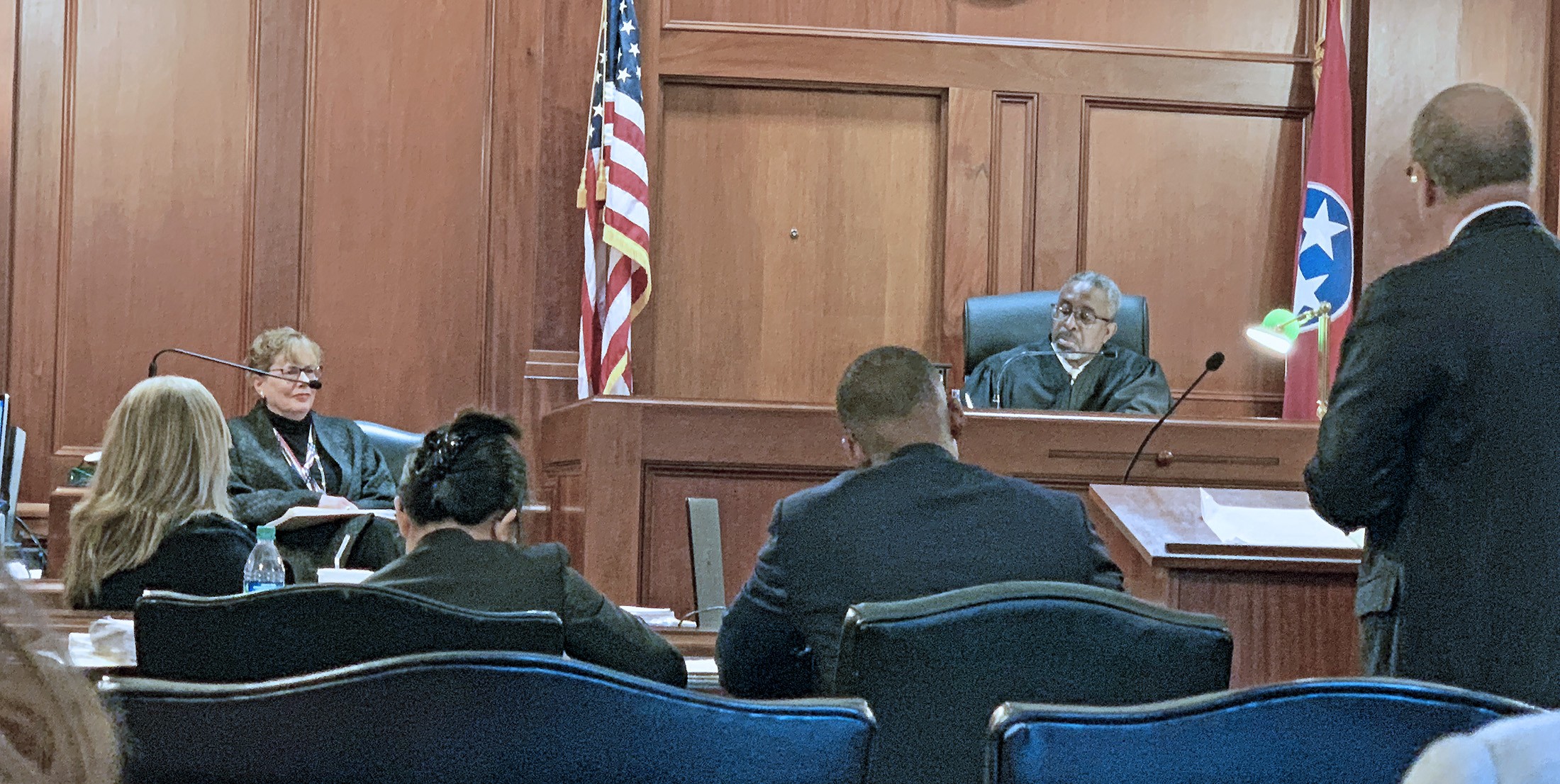 JB
JB
Chancellor JoeDae Jenkins listens as Election Commission attorney John Ryder (right) questions county Election Administrator Linda Phillips on voting suit.
“Clearly erroneous”: That was the response from Election Commission attorney John Ryder after hearing Chancellor JoeDae Jenkins find for the plaintiffs — the NAACP and the Tennessee Black Voter Project — in the latest suit involving the Shelby County electoral process.
On the other hand, Alexander Wharton, attorney for the plaintiffs, cited Jenkins’ finding as “a victory for democracy” and a valuable signal to the electorate.
Citing state Code 2-2-109, which guarantees voter registration rights, Judge Jenkins ruled that, as plaintiffs argued,” irreparable harm” could befall potentially eligible voters among an estimated 4 to 6 thousand persons whose applications to vote, received in a final rush of some 30,000 applications just before the filing deadline of October 9th, have not been fully processed.
Jenkins ordered that the Election Commission redouble its efforts to compile an accurate list of the affected applicants, locate and contact the persons involved so as to give them a chance to correct their applications, and post daily updates on the information and the progress made in completing the applications. Ryder, who maintained that the judge’s order was unfulfillable, said the commission would file an appeal with the state Court of Appeals on Friday.
Shelby County Election Administrator Linda Phillips had testified that the incomplete processing was due to such factors as wrong names, missing or non-existent addresses, multiple submissions, the fact of prior felonies, and, in many cases, the appearance of election fraud. Many of the appeals had been turned in by intermediaries who were paid by the piece-load to deliver them, she said. Phillips said that her office would probably be able to sift through the backlog of applications by November 1st, the last day of early voting and five days before the November 6th election day itself.
She said, and Ryder repeated on the commission’s behalf, that another part of the Tennessee legal code, 2-27-112, allowed the employment of provisional ballots for persons whose applications were still unapproved or unverifiable on the permanent voter-registration file as of Election Day. The validity of the provisional ballots would later be determined by a bipartisan Provisional Counting Board, composed of two Democrats and two Republicans.
Judge Jenkins, however, agreed with the plaintiffs that the resort to a provisional ballot could have a “chilling effect” on an applicant and that all applicants were entitled to a fair chance at obtaining a regular ballot that was sure to be counted.